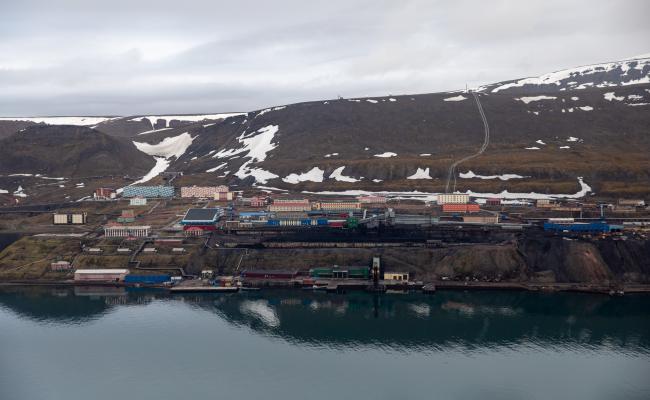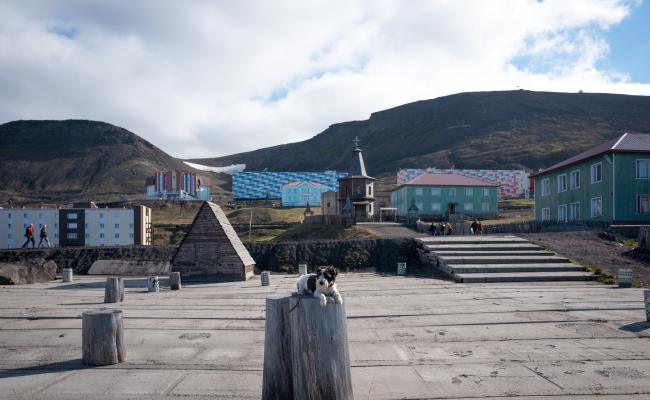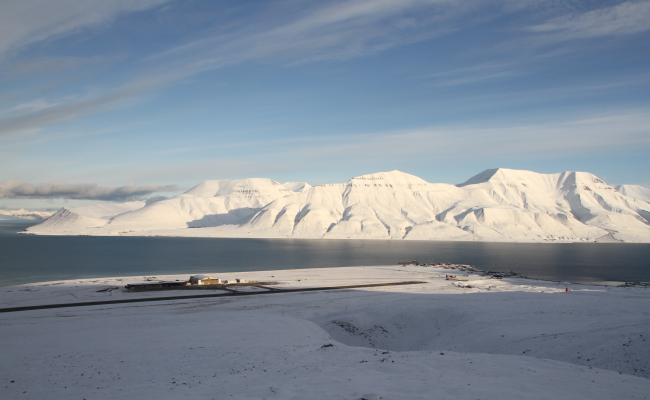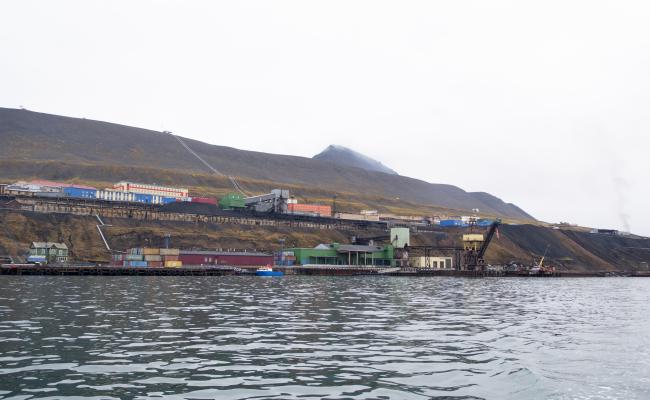Russia on Svalbard: Stepping Down on Coal, Investing More in Tourism
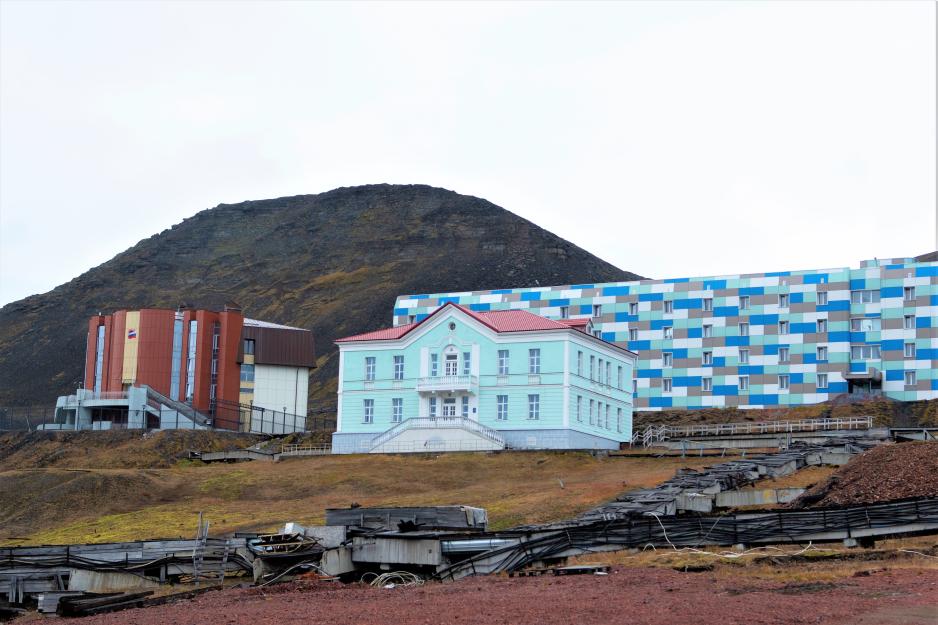
Barentsburg: The turquoise building in the front, the old Consulate General, was recently restored in 2020 in order to house the mining town's museum. Now, Russian authorities are planning to develop a museum complex to strengthen tourism. (Photo: Line Nagell Ylvisåker)
Russia's company on Svalbard, Trust Arktikugol, will further scale back coal production – and develop the tourism industry with a new museum complex, according to Russia's Minister of the Development of the Russian Far East and Arctic.
"The Trust company's future will be to systematically slow down coal production, develop tourism (our towns are the planet's northernmost settlements), as well as developing the international Arctic science station, including with BRICS counterparts."
This writes Alexei Chekunkov, Russia's Minister of the Development of the Russian Far East and Arctic, on Telegram earlier in April. That is reported by the Russian news agency TASS.
Furthermore, the minister gave a status report for Trust Arktikugol's operations and described new measures from federal authorities:
"For decades, the company has suffered losses with worn-out infrastructures, with and personnel mainly from Ukraine. It has been producing low-quality coal and now the company is caught in transport, financial, and commercial blockades. No coal was bought and Western tourists announced a boycott. We have made changes in the management team, allocated funds from the federal budget in order to upgrade infrastructures in Barentsburg and Pyramiden, and have attracted large Russian businesses to consume Spitsbergen's coal."
In January, Trust Arktikugol was granted a one-year dispensation from Norway's sanctions against the Russian regime in order to carry out coal exports to Russia. In its assessment, the Ministry of Foreign Affairs particularly emphasized the importance of ensuring that Norway fulfills its commitments under the Svalbard Treaty.
Plans for museum complex
Plans of a grand upgrade of the infrastructure in the two old Russian mining towns were announced by Chekunkov in September. The minister emphasized the potential for more tourism and maintenance of the settlements' museum character.
The Russian tourism industry on Svalbard became the subject of a local boycott shortly after Russia's invasion of Ukraine. In October, Trust Arktikulgols and its tourism subsidiary, Grumant, were also excluded from the Svalbard Tourism Council.
Despite this, Chekunkov has not lost faith in tourism opportunities.
In the recent post, he also writes that Russia is to develop a museum complex and preserve Trust Arktikugol's "unique Soviet-Arctic heritage".
Now, the museum and exhibition center in Barentsburg has initiated a longer work process to upgrade the facilities for the storage and exhibition of cultural relics, according to a letter that Trust Arktikugol sent to the Governor of Svalbard in February. It also informs that Varvara Mokstad has been hired as the new leader for the museum and center, which is also referred to as an Arctic tourism center.
Wants cultural relics back
The mentioned letter is part of a correspondence regarding the company's application to the Governor in late fall about the return of cultural relics to the former Pomor museum in Barentsburg.
Artifacts from excavations at Russian wintering grounds were brought to Longyearbyen in 2007 when the museum building was in poor condition and it was closed the year after. In 2020, the old Consulate General building was restored to house the mining town's museum.
According to the Svalbard Environmental Act, all cultural relics dating from before 1946 are automatically protected, and protected loose cultural objects are the property of the state.
In response, the Governor has asked for improved storage conditions at the museum in Barentsburg, of which the response seems to be the initiated work. The Governor has also asked for specifications of desired items, to be able to make a concrete assessment of what may be loaned back.
Big collection
In total, 4365 items were delivered to the Svalbard museum and parts of this collection have been cataloged and made available in the museum's database. Cataloging in Barentsburg from about three years ago shows that 434 automatically protected objects are exhibited in the museum there.
The Governor also wants a new agreement to be drawn up on the subject of existing and possible future loans of objects. The Director of Trust Arktikugol, Ildar Neverov, requests that such an agreement be negotiated when said work has been completed.
Neverov has also initiated that a delegation and representatives of the Governor visit the Svalbard museum to take a closer look at the collection. The parties are now working on finding a date.
Also read
This article was originally published in Norwegian and has been translated by Birgitte Annie Molid Martinussen.


